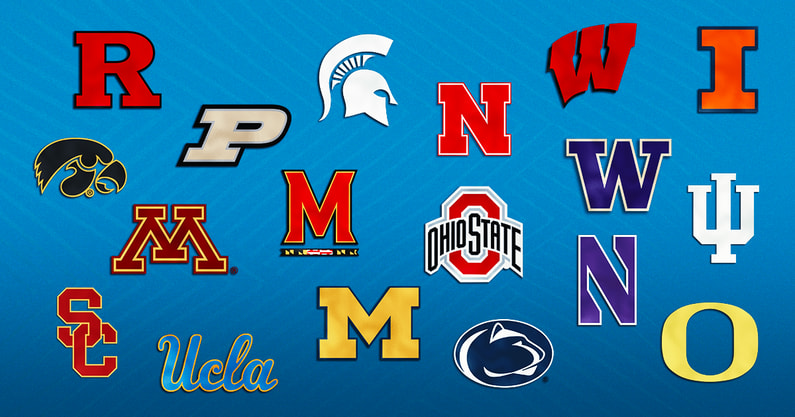As a sophomore or junior in high school, you have so many exciting decisions to make. Despite the fact that college is more than a year away, you are asked to begin the process of selecting which colleges you want to consider. Questions flood your brain: Where do I start? How do I know what I want? What should I be researching? Have I done enough? Where can I get in? How many schools do I need to apply to?
Without a doubt, creating your college list is an intimidating process. There is so much to consider when selecting a college that will be a good fit for you. Experts suggest that by the fall of your junior year, you should curate a list of around 20 prospective colleges. Preminente counselors recommend it is best to start with a broad list and narrow it down to 8-15 schools.
Let Preminente counselors help you create your ideal school list through our “Good Fit Checklist,” considering key factors such as: geographic location and size, major/minor/degree options, academic rigor and esteem, athletics, extracurricular activities and student clubs, alumni network, research and internship opportunities, and cost.
Geography & Size
When making your college list, think about a school’s location and size, as it will greatly impact your college experience. Are you someone who can brave freezing Midwest winters, or would you prefer to spend your college days overlooking the beach? Do you love the idea of immersing yourself in a city while attending your classes each day, or do you see yourself in a rural college town where students supplement their on-campus activities with the great outdoors and environmental pursuits? Are you drawn to schools where vibrant alumni band together in masses to attend sporting events? When you picture yourself in college, where do you see yourself? Think about what atmosphere you see yourself thriving in. Do you need small class sizes and a connection with your professor, or could you follow along in a large forum with hundreds of other students? These are important things to think about as you make your college list. This an opportunity in your formative years when you can choose to live somewhere for four years, to learn and grow into the person you are meant to be. Take the time to understand yourself as a learner and weigh your options before you choose the college that is right for you.
Majors
With a plethora of options for majors and minors as well as degree programs (BA, BS, BFA), deciding what major to declare can be a difficult decision. Many students approach their undergraduate experience as “undeclared” or “undecided.” For others, academic concentrations can be a driving force in their decision of where to attend college. Some majors are offered at almost any school, whereas others are niche and only offered at select schools. No matter what your interests are, with over 1,800 majors available, there is truly an academic pursuit for everyone. When you are creating a list of colleges that suit your needs, even if you aren’t 100% sure what you want to study, looking at the majors available at each school is an important part of your selection process. In addition to discovering the majors available, dig into the department website of any that pique your interest to discover courses offered, facilities and amenities, esteemed faculty and notable alumni, career implications, research opportunities and more.
Academics
When creating your college list, you should have a combination of “reach” schools, “target” schools, and “likely” schools. Reach schools are where your test scores, GPA, or class rank may be below those of the majority of students accepted at these schools. Target schools align with your test scores, GPA, and class rank, while likely schools are institutions where your academic credentials exceed those of the typically accepted first-year student. Preminente counselors can help you gather your academic data to determine which schools fit into reach, target, or likely categories given your individual situation.
Part of goal setting is making attainable goals that can be met with effort and perseverance. Make sure that your goals are realistic; know your capabilities as a student and set yourself up for a successful college experience by understanding each schools’ academic expectations.
Athletics
As a prospective student and hopeful college athlete, choosing the right college may be based on your athletic goals and ability. Well in advance of college, find out where you stand athletically. Do you want to play at a college division level or in a club/intramural league? Does your current athletic program have connections to schools or scouts? Determine the steps that you need to take to achieve your collegiate athletic goals and work with a counselor to ensure you are on the right path. Athletic programs vary from school to school and finding the one that suits your needs and skill level will help you narrow your options down.
Extracurricular Activities, Clubs, & Research Opportunities
If you are passionate about an extracurricular activity or club, and it is something you would like to continue into your college years, be sure to research the opportunities available and which colleges offer them. Clubs and extracurricular organizations are important for a variety of reasons. Not only do they fulfill your passions and interests, they can also offer social opportunities, professional networking, and can help you build your resume. Additionally, look into schools that offer research opportunities. As an undergraduate student, you may be able to research alongside faculty, conduct your own research, or pursue your own creative endeavors. If you are passionate or intrigued by something, many colleges offer opportunities to explore your interests through a scientific outlet. Work with a Preminente counselor to determine which schools can connect you to people and organizations who share common interests and can offer you exciting opportunities to pursue.
Finances & Scholarships
The cost of college varies from school to school and is dependent upon your residency by state, whether you are applying to private or public institutions, and whether or not you are eligible for merit scholarships. According to Federal Student Aid (FSA), “Plan how to pay for college before you start. Ask school counselors and the college financial aid office about state, college, and nonprofit grants and scholarships you can apply for. Be sure to meet application deadlines.” Find out more at https://studentaid.gov/ about how to create a financial plan for college. Be sure to include cost in your discussions with your parent or guardian as you make your school list.
Go Visit!
Unsure if you love a school or not? Go visit! Visiting a college is imperative when deciding if it is the right fit for you. You can easily schedule an in-person informational session and guided tour online. College counselors recommend scheduling your tours in the fall or early spring, so you are able to get a genuine feel for what it’s like on campus while classes are in session. Prior to scheduling a visit, most schools offer online informational sessions where you can register on the college’s website. Any event that you attend shows that you are actively trying to learn more about the school and in turn, builds your “demonstrated interest.” Demonstrated interest is the degree to which you show a college that you are sincerely interested in coming to their school. If your heart is set on one school, attending as many recruiting events as possible can potentially work in your favor.
When you visit a school, take full advantage of the experience. Visit undergraduate hangouts, sit in on a class, meet professors, talk to students, ask questions, go to the local restaurants; try to get a true sense of what it means to be a student there. While on your visit, be sure to dress clean and comfortably; this is not the time to wear your most formal or most casual clothes. To learn more about best practices for college visits, get in touch with Preminente counselors who can help you schedule tours and give you tips on how to make the most of your visit.
Know Before you Go
As prospective college students, it is important to have foresight as you make these meaningful decisions. Spend time researching what each school has to offer. Look at the coursework, research the professors, consider the opportunities within the available programs. What are the graduation rates? Is there a strong alumni network? Will you need continuing education to secure a job in the future? Does your college offer five-year programs to help you get your bachelor’s and master’s? It is crucial to be knowledgeable about all your options before deciding where you want to go to college. Let a Preminente counselor guide you through this process and help you make the right choice!



